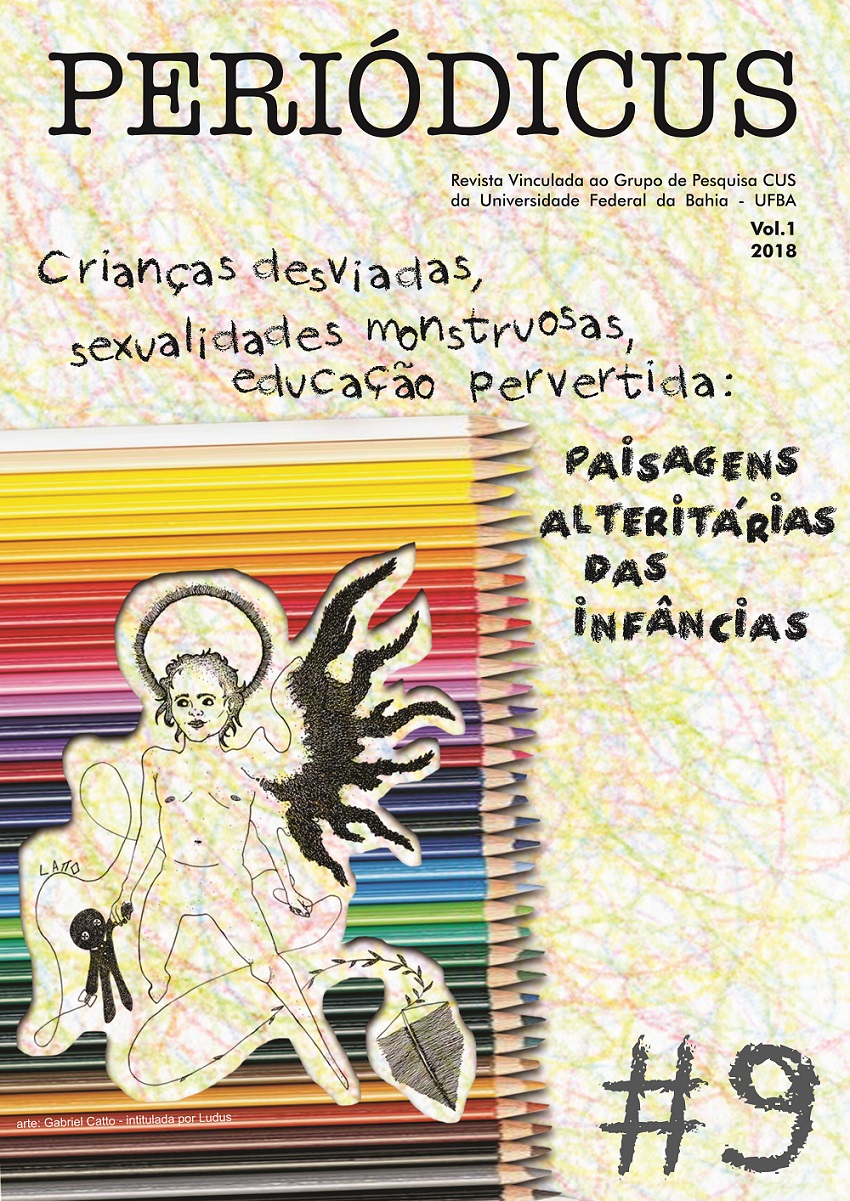Leitura queer: um ato de resistência e alteridade
DOI:
https://doi.org/10.9771/peri.v1i9.24822Abstract
Este artigo tem como objetivo discutir a importância do ensino/aprendizagem da leitura como processo de formação do cidadão. Entendo aqui por leitura um processo comunicacional que vai além de apenas decodificar signos linguísticos; ele é basicamente um dialogismo entre vozes, e ainda, um exercício de alteridade. Desse modo, ler é uma atividade sociocultural. A partir da tradição educacional da formação de leitores, no artigo, ressalto ainda a importância de ler como uma mulher, a partir das teorias de Jonathan Culler (1998), e de ler como uma lésbica, a partir de pesquisas de Tania Navarro-Swain (2000), Adrienne Rich (2010) e Monique Wittig (1980). Proponho, por fim, que a formação do leitor deve ser feita através de uma pedagogia que abranja uma leitura queer. Em outras palavras, ler de forma queer é um ato de estranhamento necessário, bem como de acolhimento e de diálogo. Assim, a leitura queer é um ato de resistência e de alteridade, princípios norteadores e inerentes de todo e qualquer processo de leitura que se pretenda inclusivo e democrático.
Palavras-chave: leitura; leitura queer; teoria queer.
Downloads
Downloads
Published
How to Cite
Issue
Section
License
Copyright (c) 2018 Revista Periódicus

This work is licensed under a Creative Commons Attribution-NonCommercial 4.0 International License.
Authors who publish in this journal agree to the following terms:
Authors retain copyright and grant the journal the right of first publication, with the work simultaneously licensed under a Creative Commons Attribution Noncommercial License that allows the work to be shared with acknowledgment of authorship and initial publication in this journal, but prohibits commercial use.
Authors are authorized to enter into separate additional contracts for non-exclusive distribution of the version of the work published in this journal (e.g., publishing in an institutional repository or as a book chapter), with acknowledgment of authorship and initial publication in this journal.
Authors are permitted and encouraged to publish and distribute their work online (e.g., in institutional repositories or on their personal website) at any point before or during the editorial process, as this can generate productive changes and increase the impact and citation of the published work (see The Effect of Open Access).








